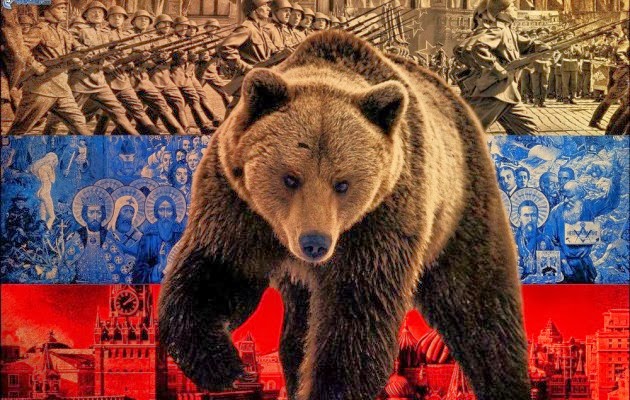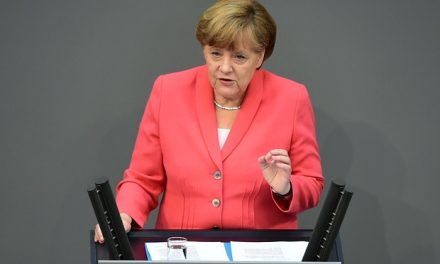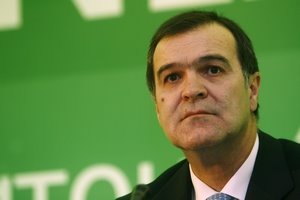With the new US sanctions Russia is officially a top US enemy. But does Moscow deserve this title?
By byRoman Dobrokhotov, AlJazeera
Russians themselves would be surprised to hear that their country has been recognised as an enemy only now. In the imaginary world which Russian state TV projects into the heads of Russian citizens, there have been two major world powers competing all along – America (and its submissive satellite – the EU) and Russia, which stepped back on its feet thanks to Vladimir Putin. If someone told Russians that up to 2016 the US and Western Europe did not even notice Russia, they would take this as an insult and refuse to believe it.
For a long time, this image of the world which Russian media was propagating, was seriously schizophrenic. While TV channels were broadcasting vicious anti-West propaganda, Russia was participating in joint military exercises with NATO, was allowing the US to use its bases for the war in Afghanistan, was hosting the G8 summit in St Petersburg and was pursuing WTO membership. But gradually the imaginary world in Russian domestic propaganda started becoming reality – Russia started sinking deeper and deeper into economic and political isolation, and eventually, the West came to consider it a threat again. It is a bit like the plot of the film Wag the Dog in which a war in Albania made up to save a failing presidency in the US turns into a real one.
But while in Russia, reality and a media-crafted image of the world are gradually converging, in the West – they are diverging. In the US and Europe, it seems, they indeed believe that Russia must be addressed as a serious threat, like the USSR in the past. But is Russia really a threat to the West?
As outrageous as Russia’s attempts to interfere in US elections may be, they had very little effect. What is worrying about the 2016 US election is not external interference, but the fact that millions of American citizens blindly accepted Trump\’s primitive populist slogans.
Any comparison between Russia and the USSR today is comical. The Soviet Union was a poor country, but it regardless was the leader of the socialist camp. USSR satellites and allies made up half of the world. Today, Russia’s GDP makes up only 1.5 percent of the world’s and its allies number exactly 10 countries (as per the vote on the UN resolution on the annexation of Crimea). Two of those are former Soviet countries (Armenia and Belarus) and the remaining eight are Bolivia, Venezuela, Zimbabwe, North Korea, Cuba, Nicaragua, Syria and Sudan. The one thing the 10 have in common is massive poverty and internal instability problems.
Russia is behaving, like before, more aggressively on the international scene. But the influence of a country is measured in its ability to achieve its political goals. And what has Russia achieved in recent times?
Let’s take for example the cyberattacks and disinformation campaigns supposedly organised by the Kremlin. The fingerprints of hackers linked to GRU, the Russian military intelligence directorate, were found in the attack on French President Emmanuel Macron’s email and in the attempt to break into voting machines in the US. The same hackers are also accused of attempts of breaking into government servers or other major political institutions in almost all other European countries. It is also known that these hackers have been engaging with the Kremlin’s “troll factories” which spread disinformation on social media networks. But is there any evidence that these cyber campaigns have any effect?
A typical example are the elections in France. Hackers successfully broke into Macron’s email and trolls actively spread fake evidence of offshore accounts, while his opponent Marine Le Penn was backed by Russia. And how much did this help her?
In the US, they are still complaining about Russia’s intervention in their elections. Russia, of course, tried to intervene, but all fake news that was spread in the US before the elections (like Pizzagate and the story of Hillary Clinton’s “sickness”) were made up by US conspiracy theorists who didn’t need any support from the Kremlin to spread them. Hackers could not really take control of voting machines on a large scale. And as for the meetings of Donald Trump’s election campaign staff with suspicious Kremlin-linked individuals, did they actually help him? Even if Russian lawyer Natalia Veselnitskaya passed on any information on Hillary Clinton allegedly receiving “illegal donations” for her campaign, it clearly did not amount to much, or else Trump would have used it as a “kompromat”.



















